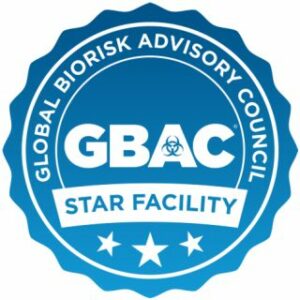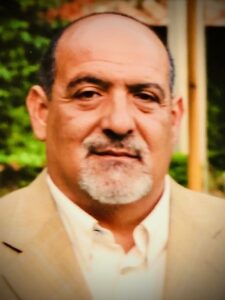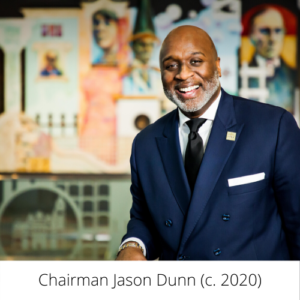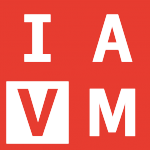Georgia World Congress Center First Venue to Achieve GBAC STAR Facility Accreditation
By Jon Adkins and R.V. Baugus
The Global Biorisk Advisory Council (GBAC), a Division of ISSA, announced that the Georgia World Congress Center, site of IAVM’s VenueConnect in July 2021, is the first public assembly venue to achieve GBAC STAR™ facility accreditation. The GBAC STAR program helps commercial and public facilities of all sizes establish and carry out a systematic approach to cleaning, disinfection and infection prevention.
“Congratulations are in order for the Georgia World Congress Center, which has put time and energy into  reviewing their cleaning procedures alongside GBAC STAR’s criteria,” said GBAC Executive Director Patricia Olinger. “We look forward to the many accreditations that will follow as other organizations seek third party validation from GBAC.”
reviewing their cleaning procedures alongside GBAC STAR’s criteria,” said GBAC Executive Director Patricia Olinger. “We look forward to the many accreditations that will follow as other organizations seek third party validation from GBAC.”
Boasting more than 4 million square feet of total space, Georgia World Congress Center features 1.5 million square feet of flexible exhibit space, and is one of only a few venues to offer more than 1 million square feet of contiguous exhibition space. As the world’s largest LEED certified convention center, GWCC welcomes more than 1 million visitors annually. GWCC was among the first convention centers in the country to commit to achieving GBAC STAR certification to make future gatherings safer.
“We are honored to be pacing the industry by achieving GBAC STAR accreditation,” said Frank Poe, executive director of Georgia World Congress Center Authority. “Although events will look different moving forward, our commitment to our customers, show attendees, and team members that the highest cleaning and disinfection protocols are being implemented at GWCC hasn’t changed. We would expect nothing less of ourselves and for our facility.”
“Frank Poe and Brett Mitchell have been leaders of this initiative and this council,” said Mark Herrera, IAVM Director of Education and Life Safety. “They and the GBAC working group have helped set the tone for the entire industry to explore and to assure that the decisions we make pertaining to the health and well-being of our number one asset — people — is never compromised. To have a reputable accrediting body such as the Global Biorisk Advisory Council as part of the venue industry startup focused on cleaning and disinfecting certify our venues only speaks to the more than reasonable efforts we are assuring as an industry and not circumventing health precautions.”
“GBAC STAR is a great third party certification for bio-hazard sanitation accreditation and integral part of ensuring public assembly venues are safe for everyone who enters,” added Brad Mayne, CVE, IAVM President and CEO. “We thank Frank Poe, Brett Mitchell, and the entire GBAC Public Assembly Facility Health and Safety Working Task Force for their amazing work with ISSA on moving this initiative forward in an expedient manner.”
Facilities and organizations in 30 countries are adopting the GBAC STAR program to ensure they follow best practices in the wake of the COVID-19 pandemic. These include professional sports venues, hotels, restaurants, convention centers, airports, churches and more.
“With the threat of coronavirus still high in many areas, people want assurance that facilities are taking extra precautions to enhance cleanliness and safety,” said ISSA Executive Director John Barrett. “Whether an organization has space for millions or just a few employees, GBAC STAR will continue to be an important indicator of a facility’s thoroughness around cleaning, disinfection and infection prevention.”
To learn more about GBAC STAR accreditation criteria and access an application, click here.
To view additional committed facilities and supporters, go here.
Jon Adkins is Vice President, Marketing & Communications for ISSA, of which GBAC is a division.
Larry Fontana to Retire After 50 Years in Live Event Business
By Dennis Dennehy
AEG Presents, a global leader in concert promotion and artist development, announced that Larry Fontana is riding off into the sunset after a storied career in the Texas live events market.
Fontana joined AEG in 2004 as the General Manager of what is currently known as the Theater at Grand Prairie in  Grand Prairie, TX. He eventually moved on to the position of VP of Venue Operations at AEG Presents working with and developing venues and personnel across North America.
Grand Prairie, TX. He eventually moved on to the position of VP of Venue Operations at AEG Presents working with and developing venues and personnel across North America.
“As almost everyone in our industry is aware, Larry and I go back to the 80’s,” remarked Jay Marciano, Chief Operating Officer of AEG and Chairman and CEO of AEG Presents. “Together, we opened countless venues, and put on more concerts and slayed more dragons than I can remember. Our industry will miss this great pioneer, AEG will miss our colleague and I will miss my friend.”
Fontana was no stranger to the event business, working at the concession stand of his grandfather’s movie theater when he was only 12. While attending the University of Texas in Austin, he worked part-time at the Palmer Auditorium. In 1977, he moved to the Frank Erwin Center on the UT campus as Associate Director. He joined MCA/PACE concerts in 1989 as General Manager of the then-named Coca Cola Starplex, a 20,000 cap amphitheatre. In 2004, he joined AEG Presents (when it was known as AEG Live) as GM of the Nokia/Verizon Theatre in Grand Prairie, a venue that can transform from a 6,000 capacity theater to a more intimate 1,800 capacity venue via its motorized reduction walls.
“I have been fortunate to work with many of the best venue managers in the business and have been associated with many outstanding venues and always have been supported by great staff members,” Fontana said. “I have always said my career beat the heck out of working for a living. But now it’s time for me to hang up the laminate and watch our business be reborn again.”
Dennis Dennehy is Chief Communications Officer at AEG Presents.
Connect Announces Strategic Alliance with National Coalition of Black Meeting Professionals
By Stephanie Davis Smith and Marlinda Henry
Connect, a leader in live events for meeting planners and those in the travel and tourism industry, has come alongside the National Coalition of Black Meeting Professionals for an unprecedented three-year strategic alliance where Connect will invest in the organization’s student scholarships, internships, and professional development for its members.
The alignment with NCBMP will assist with their mission of empowering Black hospitality professionals as they  have a proven track record of moving the needle in this space. Connect will donate $100,000 over the next three years to fund the organization’s important initiatives.
have a proven track record of moving the needle in this space. Connect will donate $100,000 over the next three years to fund the organization’s important initiatives.
“We have always enjoyed a long friendship with NCBMP, but recent protests and activism has opened our eyes, and we realized we need to take urgent steps within our own industry to support racial equality,” said Chris Collinson, President of Connect.
“The National Coalition of Black Meeting Professionals was built on the foundation of empowerment and friendship. We are encouraged by the strategic alignment of Connect Meetings via their actions, not just their public statements and look forward to three years of empowering our friends. It is refreshing to know that NCBMP has friends of all shades and backgrounds that believe in humanity, equity, and the future of our industry,” said Jason Dunn, NCBMP Board Chair.
“We recognize the immediate need to align with great organizations like NCBMP to help ensure our industry is a leader in equality for Black people,” Collinson added. “We have long seen and understood the importance of supporting diversity in our events and company and know these dollars will help toward greater equality for all people. We wanted to double down and partner with NCBMP because the issue is urgent today.”
Stephanie Davis Smith is VP of Content and Marketing for Connect Meetings, and Marlinda Henry is President, National Coalition of Black Meeting Professionals.
Full Steam Ahead For Optus Stadium With Full Crowds Expected in July
By Graham Mason
Optus Stadium in the Perth, Western Australia, suburb of Burswood, is ready to welcome crowds back to football next month, following the WA State Government announcement of the relaxing of rules governing mass gatherings.
From Saturday, July 18, Optus Stadium will be in the unique situation of being able to operate at full capacity, without crowd restrictions, and be able to welcome back up to 60,000 expectant football fans.
In the meantime, until the next tranche of AFL fixtures are announced, the Catering team has begun the process  of restocking the venue with Gage Roads, Mrs Mac’s pies and all the other food favourites that football fans expect.
of restocking the venue with Gage Roads, Mrs Mac’s pies and all the other food favourites that football fans expect.
The Optus Stadium Operations team has taken the opportunity over the past few months to complete a full range of work, in anticipation events would eventually return to the stadium that last year was voted the most beautiful venue in the world.
That includes a deep clean of retail and premium product spaces, installation of sanitising stations, sanitising of all equipment and areas, upgrades to stadium security and CCTV systems, and decommissioning and now recommissioning of all electrical equipment and infrastructure that had meant big savings in utility consumption.
Optus Stadium CEO Mike McKenna said it has been 121 days since West Australians were able to enjoy an event at Optus Stadium, with the Queen + Adam Lambert concert before more than 47,000 fans, the last event on February 23.
“The opportunity to welcome fans back to Optus Stadium is a great celebration of success for all West Australians in dealing with the COVID-19 pandemic,” he said. “Everyone can’t wait for the return of the AFL. Football is a major avenue for the people of WA to connect with family and friends, it’s a key component of our community and culture and an opportunity for outdoor social activity and engagement.”
Optus Stadium employs 3,000 casual staff, 300 security, and 200 cleaners and the majority have indicated a willingness to return to work at Optus Stadium.
“More than 60% of Optus Stadium staff are female and we understand that demographic has been hard hit by the impact of COVID-19. We look forward to providing opportunities for all of our fantastic staff to get back to the work they love,” McKenna said.
Along with direct stadium employment, events at Optus Stadium provide business for many WA companies who supply goods and services.
Fans at Optus Stadium purchase up to $50 million per annum in food, beverages and other supplies. Up to 85% of that is supplied by WA companies like Gage Roads and Mrs Mac’s which equates to hundreds of jobs for businesses reliant on stadium activities.
Graham Mason is Head of Media, Communications & Government Relations, Optus Stadium.
Voting Now OPEN for IAVM’s 2020 – 2021 Board of Directors

Voting is now open and remain so through July 17, 2020 at midnight CT. The complete slate including biographical information and photos can be viewed on the IAVM web site. Our voting process has changed with the introduction of a new nomination/application process for sector directors. The ballot you will see this year will only include the Second Vice Chair election, and if you identified as one of the following sectors: Allied, Arenas, or Universities you will find the election for that Sector Director. At most, you will be voting for two incoming positions on the 2020 – 2021 Board of Directors.
As you know, each regions’ members elect their slate of officers (to include Region Director) and does not require a ballot for the entire IAVM membership’s approval.
All voting members should have already received an email titled “2020-2021 IAVM Board of Directors Election-login information below”. The email contains a generated user name and password to use when logging in to submit votes. If you haven’t received the email, please contact Rosanne Duke via email or by calling 972.538.1025.
As in the past, the ballot is available through Survey & Ballot Systems allowing complete confidentiality and security to our members. The results of the voting will be posted following the closing of the ballot on July 17.
Do you want to receive a Front Row News weekly digest?
Categories
- Allied (861)
- Architecture (147)
- Arenas (747)
- Career (897)
- Convention Centers (895)
- Education (623)
- Events (1,544)
- Food & Beverage (193)
- Foundation (113)
- Guest Experience (1,496)
- Industry News (2,270)
- Leadership (1,888)
- Marketing (150)
- Membership (2,000)
- Music (213)
- Performing Arts Centers (454)
- Professional Development (409)
- Research (127)
- Safety & Security (442)
- Sports (763)
- Stadiums (608)
- Student (159)
- Technology (516)
- Ticketing (92)
- Touring (82)
- Trends (364)
- Uncategorized (739)
- Universities (218)
- Video (25)
- Young Professional (198)
Twitter Feed
- Twitter feed loading
Recent Posts
- New Member Benefit! IAVM Partners with Advantage Training to Elevate Staff Readiness and Guest Experience
- Charlotte Convention Center Welcomes Two New Leaders to its Management Team
- Fort Worth Cuts Ribbon on Phase 1 of Convention Center Expansion
- Raleigh Convention Center Update Following December 1st Fire
- VenuWorks Appoints Robert Thomas as Executive Director for Cedar Rapids Facilities
Categories
- Allied
- Architecture
- Arenas
- Career
- Convention Centers
- Education
- Events
- Food & Beverage
- Foundation
- Guest Experience
- Industry News
- Leadership
- Marketing
- Membership
- Music
- Performing Arts Centers
- Professional Development
- Research
- Safety & Security
- Sports
- Stadiums
- Student
- Technology
- Ticketing
- Touring
- Trends
- Uncategorized
- Universities
- Video
- Young Professional
Archives
- December 2025
- November 2025
- October 2025
- September 2025
- August 2025
- July 2025
- June 2025
- May 2025
- April 2025
- March 2025
- February 2025
- January 2025
- December 2024
- November 2024
- October 2024
- September 2024
- August 2024
- July 2024
- June 2024
- May 2024
- April 2024
- March 2024
- February 2024
- January 2024
- December 2023
- November 2023
- October 2023
- September 2023
- August 2023
- July 2023
- June 2023
- May 2023
- April 2023
- March 2023
- February 2023
- January 2023
- December 2022
- November 2022
- October 2022
- September 2022
- August 2022
- July 2022
- June 2022
- May 2022
- April 2022
- March 2022
- February 2022
- January 2022
- December 2021
- November 2021
- October 2021
- September 2021
- August 2021
- July 2021
- June 2021
- May 2021
- April 2021
- March 2021
- February 2021
- January 2021
- December 2020
- November 2020
- October 2020
- September 2020
- August 2020
- July 2020
- June 2020
- May 2020
- April 2020
- March 2020
- February 2020
- January 2020
- December 2019
- November 2019
- October 2019
- September 2019
- August 2019
- July 2019
- June 2019
- May 2019
- April 2019
- March 2019
- February 2019
- January 2019
- December 2018
- November 2018
- October 2018
- September 2018
- August 2018
- July 2018
- June 2018
- May 2018
- April 2018
- March 2018
- February 2018
- January 2018
- December 2017
- November 2017
- October 2017
- September 2017
- August 2017
- July 2017
- June 2017
- May 2017
- April 2017
- March 2017
- February 2017
- January 2017
- December 2016
- November 2016
- October 2016
- September 2016
- August 2016
- July 2016
- June 2016
- May 2016
- April 2016
- March 2016
- February 2016
- January 2016
- December 2015
- November 2015
- October 2015
- September 2015
- August 2015
- July 2015
- June 2015
- May 2015
- April 2015
- March 2015
- February 2015
- January 2015
- December 2014
- November 2014
- October 2014
- September 2014
- August 2014
- July 2014
- June 2014
- May 2014
- April 2014
- March 2014
- February 2014
- January 2014
- December 2013
- November 2013
- October 2013
- September 2013
- August 2013
- July 2013
- June 2013
- May 2013
- April 2013
- March 2013
- February 2013
- January 2013
- May 2012
- March 2012
- December 2011
- November 2011
- October 2011
Recent Comments
- Frank Bradshaw, Ph.D., CVE on John Meyer, CVE, a Tireless Advocate of Certification for Venue Professionals, Has Died
- Neil Sulkes on Hilary Hartung, Friend to Many in Venue Marketing, Has Left Us
- Jason Parker, CVE on The Devastation of Hurricane Helene and How We Can Support One Another
- Larry Perkins on Touhey Testifies Against Speculative Ticketing Before Congressional Subcommittee
- Peter Secord on Major Players for Planned Elkhart Amphitheater Were in the Mix at VenueConnect
